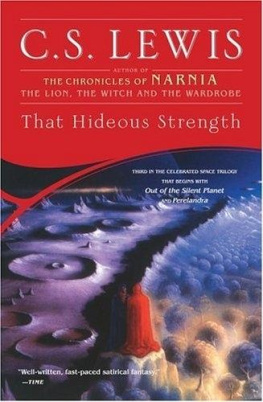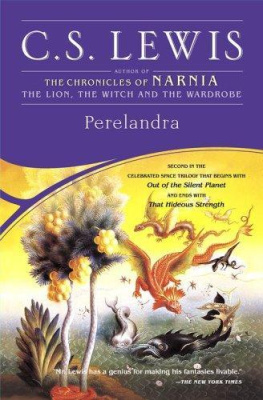Beverly Lewis - The Thorn (The Rose Trilogy, Book 1)
Here you can read online Beverly Lewis - The Thorn (The Rose Trilogy, Book 1) full text of the book (entire story) in english for free. Download pdf and epub, get meaning, cover and reviews about this ebook. year: 2010, publisher: Bethany House, genre: Art. Description of the work, (preface) as well as reviews are available. Best literature library LitArk.com created for fans of good reading and offers a wide selection of genres:
Romance novel
Science fiction
Adventure
Detective
Science
History
Home and family
Prose
Art
Politics
Computer
Non-fiction
Religion
Business
Children
Humor
Choose a favorite category and find really read worthwhile books. Enjoy immersion in the world of imagination, feel the emotions of the characters or learn something new for yourself, make an fascinating discovery.
- Book:The Thorn (The Rose Trilogy, Book 1)
- Author:
- Publisher:Bethany House
- Genre:
- Year:2010
- Rating:3 / 5
- Favourites:Add to favourites
- Your mark:
- 60
- 1
- 2
- 3
- 4
- 5
The Thorn (The Rose Trilogy, Book 1): summary, description and annotation
We offer to read an annotation, description, summary or preface (depends on what the author of the book "The Thorn (The Rose Trilogy, Book 1)" wrote himself). If you haven't found the necessary information about the book — write in the comments, we will try to find it.
The Thorn (The Rose Trilogy, Book 1) — read online for free the complete book (whole text) full work
Below is the text of the book, divided by pages. System saving the place of the last page read, allows you to conveniently read the book "The Thorn (The Rose Trilogy, Book 1)" online for free, without having to search again every time where you left off. Put a bookmark, and you can go to the page where you finished reading at any time.
Font size:
Interval:
Bookmark:

BEVERLY
LEWIS


To my darling cousins Bonnie, Marcia, Susie, and Marie, sisters four. And in loving memory of dear Caroline. 1923-2010

September 1985
At times I wonder what might've happened if I'd gone with Mamm that damp, hazy morning eleven years ago. She was so tired - she'd said it herself - preparing for market day. Such a bleak expression dulled her sweet face as she trudged out to the waiting horse and the enclosed gray carriage filled with gourds and squash and other garden vegetables.
A shudder rippled through me as I watched her step into the buggy, carrying the rectangular money tin for making change at market. Was I somehow sensing what was just ahead?
She set the tin box on the front seat next to her and picked up the reins as I stood on the back steps. Then she gave a faint wave and our eyes locked momentarily. In that burning second, I felt the urge to run out to the buggy and stop her, or at least offer to join her, as though my presence alone might keep Providence from having its way.
But before I could do so, Mamm clicked her tongue for UpsyDaisy to move ahead, and the young mare trotted off by way of Salem Road, where our farm adjoins the bishop's own. Then over one road and down ... down the precarious Bridle Path Lane that rims the rocky ravine, our shortcut to the main roads leading to Quarryville.
Even now, as a young woman of twenty, I think back to that miserable hour and tremble, wishing I'd heeded the alarm clanging in my brain. Yet there I stood, watching silently in the mist and the fog.
How could I have known Mamm would be found sometime later, lying along the road and unable to walk, the family buggy turned upside down in the rugged ravine below?

Around that time, our neighbor, the bishop, brought home a foster child from Philadelphia. I'll never forget the day I met Nick Franco. He was just ten and scrawny as a stick ... his wavy hair as black as a raven. My mother had taken my sister and me next door to welcome him, a basketful of food tucked under her arm.
There, in the far corner of the big kitchen, Nick had sat all slumped over, as if someone had dropped a feed bag on his slight shoulders. He was dressed like any of the Amish schoolboys round here - the thin black suspenders and baggy pants out of place with his short English haircut. When he glanced up from his perch on a wooden stool, I caught the lost look in his dark, sad eyes and realized he must've been taken away from everything he'd known. Nick never so much as uttered a word when the bishop's wife introduced him as "our new son." Neither did he speak to a single soul the rest of that week, the bishop later told Dat.
Right away, I felt sorry for Nick Franco - an outsider come to live with our man of God. I learned later that his father had abandoned him when Nick was a toddler and that his mother was seriously ill, too sick to care for him. No other family members were willing or able to take him in, so he wound up in a foster program. Like it or not, the People hoped that he might become Amish.
Nick was sullen and quiet during those early months. Honestly, it irked me no end how aloof he could be. I occasionally got brave enough to attempt conversation, but he would turn away as if he hadn't heard me. Or didn't care to. Even so, I heeded my inner urge to treat him kindly, the way I'd want to be ... if I had to walk in his shoes.
And I kept trying to talk to him. About the time Nick turned eleven - a year after his arrival - his expression became a bit softer. Sometimes when he looked my way, there was even an inkling of a smile. But the misery lurking in his eyes never completely faded.
It was then he started working for my father on Saturdays and weekdays, after school. I'd wander out to the barn, if my sister was looking after Mamm, to watch him haul manure with Dat and my older brother Mose.
Quickly, I learned not to call hullo when I entered the barn, because there was just no getting a response from the bishop's second son. For the longest time, I actually assumed Nick Franco was partly deaf.
Eventually I tried talking to the horses, loud enough for Nick to hear. "You're growin' a thicker coat, ain't ya, Upsy-Daisy?" I might say, stroking the mare while glancing at Nick out of the corner of my eye. "Winter'll be here before we know it, ain't?"
Nick would sometimes snicker or cough. Now and again he might even mutter something back, like "Ain't even fall yet," and then quickly return to his apathetic whistling.
For the longest time this strange sort of game continued between us. Then one day he began to say a few words directly to me. I felt ever so proud - in a good way, of course. Jah, somehow we'd managed to become friends. And considering his sullen nature and the way he normally kept to himself - even during school recess - I daresay I was his only friend.
One afternoon, he surprised me by asking if I'd go riding horses with him, "just for fun." He was still quite standoffish, so I was taken aback at this invitation. And I resisted.
Nick persisted the next day, and the next, just as I had all those months trying to draw him out in conversation. At last I agreed. So he took one of the bishop's spirited colts, and I chose our feisty George, and we rode along the narrow treed section of Salem Road, west of our house, down past the Amish schoolhouse and Farmdale Road.
Oh, what a wonderful-gut time it was! I'd never felt so carefree in all of my young life, the wind on my face, my hair falling out of its formal bun. Much to Nick's and my own amusement ... but hopefully not to the Lord's dismay!
It was a turning point in our friendship. And, little by little, I began to feel more comfortable with the shy city boy who rarely spoke as he listened to me chatter on about whatever popped into my head.

Last month after Preaching service, Mamm eyed Nick while we sat out on the lawn waiting for the common meal. "I hope ya know that boy's trouble," she said softly from her wheelchair.
"Dat's had him workin' for us all these years," I replied too quickly.
Mamm waved her hand absently. "Workin' and socializin' are altogether different." She let out a long sigh, her eyes growing stern. "Just mark my words: Nick ain't our kind."
I considered that, surprised she was so pointed. "Bishop made him one of us by takin' him in, jah?"
"Plain clothes don't make ya Amish and never will. And just look at that ponytail he's got." Mamm clucked her tongue. "I honestly pity the girl who ends up married to him."
I nodded my head wholeheartedly. The way he was wearing his hair so long in back made anyone look twice, especially since the rest of him looked downright Amish.
"Hen's blunder oughta be a lesson to any girl," Mamm added.
Always, always, my parents set up my only sister as an example to encourage my ongoing compliance. "Look what Hen went and did," they'd say, "getting herself hitched to Brandon Orringer" - her Englischer husband.
"Don't worry, Mamm. I'd never marry someone who's not really Amish."
Font size:
Interval:
Bookmark:
Similar books «The Thorn (The Rose Trilogy, Book 1)»
Look at similar books to The Thorn (The Rose Trilogy, Book 1). We have selected literature similar in name and meaning in the hope of providing readers with more options to find new, interesting, not yet read works.
Discussion, reviews of the book The Thorn (The Rose Trilogy, Book 1) and just readers' own opinions. Leave your comments, write what you think about the work, its meaning or the main characters. Specify what exactly you liked and what you didn't like, and why you think so.

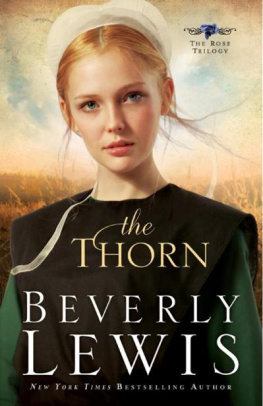
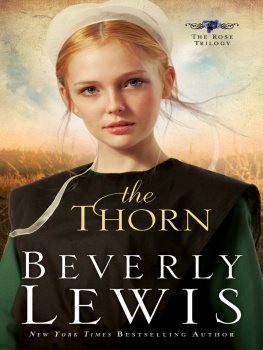
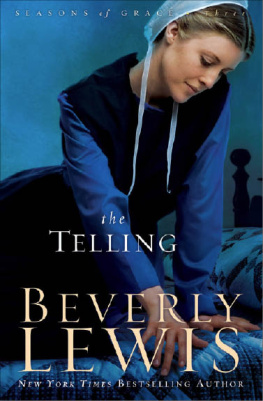
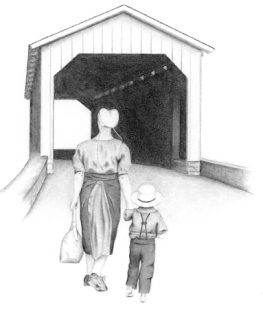
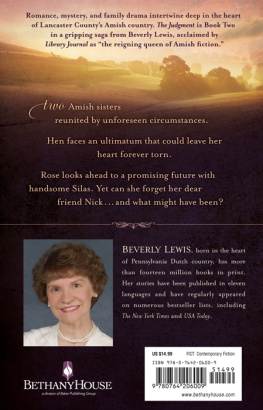

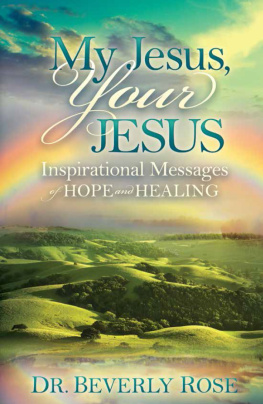
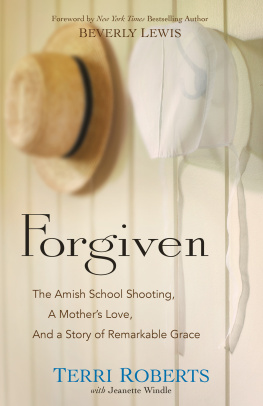
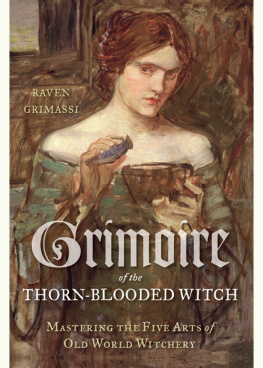
![Beverly M Lewis] - The Beverly Lewis Amish Heritage Cookbook](/uploads/posts/book/96304/thumbs/beverly-m-lewis-the-beverly-lewis-amish-heritage.jpg)
